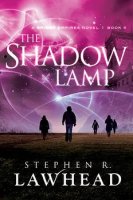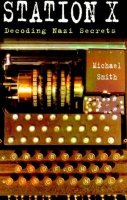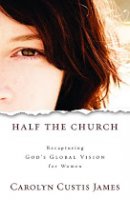Recently we attended another wonderful Horns & Pipes concert at Orlando's Cathedral Church of St. Luke. We have been enjoying these ever since Heather made the suggestion back in 1996. One of the works featured was Fisher Tull's The Binding. I believe Heather and Janet in particular will enjoy hearing it, even though this version I found on YouTube is not quite as glorious as with the larger and more professional Horns & Pipes ensemble.
With Ash Wednesday only a week away, look what Ben & Jerry's has done!
My reading for 2013 started off at a great pace: I had read 28, more than half my goal of 52 (one per week), by the end of March. That by the beginning of 2014 I had completed only 57 shows how busy the rest of the year was.
Here's the list, sorted alphabetically. A chronological listing, with rankings, warnings, and review links, is here. I enjoyed most of the books, and regret none. Titles in bold are particular favorites.
- 3 Theories of Everything by Ellis Potter
- Animorphs #1: The Invasion by K. A. Applegate
- Animorphs #2: The Visitor by K. A. Applegate
- Animorphs #3: The Encounter by K. A. Applegate
- Animorphs #4: The Message by K. A. Applegate
- Animorphs #6: The Capture by K. A. Applegate
- Animorphs #7: The Stranger by K. A. Applegate
- Animorphs #8: The Alien by K. A. Applegate
- Better than School by Nancy Wallace
- Child's Work by Nancy Wallace
- Cooked by Michael Pollan
- Deer Hunting with Jesus by Joe Bageant
- Difficult Personalities by Helen McGrath and Hazel Edwards
- Getting Organized in the Google Era by James A. Martin
- God Is Red by Liao Yiwu
- The Gospel of Ruth by Carolyn Custis James
- Guitar Zero by Gary Marcus
- Hannah Coulter by Wendell Berry, narrated by Susan Denaker (audio book)
- The History of the Medieval World by Susan Wise Bauer
- The Hobbit by J.R.R. Tolkien
- The Hork-Bajir Chronicles by K. A. Applegate
- How to Be Idle by Tom Hodgkinson
- The Idle Parent by Tom Hodgkinson
- Indian Captive by Lois Lenski
- The Keys to the Kingdom #1: Mister Monday by Garth Nix
- The Keys to the Kingdom #2: Grim Tuesday by Garth Nix
- The Keys to the Kingdom #3: Drowned Wednesday by Garth Nix
- The Keys to the Kingdom #4: Sir Thursday by Garth Nix
- The Keys to the Kingdom #5: Lady Friday by Garth Nix
- The Keys to the Kingdom #6: Superior Saturday by Garth Nix
- The Keys to the Kingdom #7: Lord Sunday by Garth Nix
- Kluge by Gary Marcus
- Landmark 2: The Landing of the Pilgrims by James Daugherty
- Landmark 9: The Building of the First Transcontinental Railroad by Adele Nathan
- Life of Fred: Apples by Stanley F. Schmidt (This series is not bolded, because they are math textbooks, but I loved reading them, and they're great math stories.)
- Life of Fred: Butterflies by Stanley F. Schmidt
- Life of Fred: Kidneys by Stanley F. Schmidt
- Life of Fred: Liver by Stanley F. Schmidt
- Life of Fred: Mineshaft by Stanley F. Schmidt
- Lilith by George MacDonald
- Lost Women of the Bible by Carolyn Custis James
- Make the Bread, Buy the Butter by Jennifer Reese
- The Man Who Was Thursday by G. K. Chesterton
- Meet Christopher Columbus by James T. de Kay
- The Myth of the Garage by Chip Heath and Dan Heath
- The Princess and Curdie by George MacDonald
- The Princess and the Goblin by George MacDonald
- Project-Based Homeschooling by Lori Pickert
- The Second Jungle Book by Rudyard Kipling
- Simplicity Parenting by Kim John Payne
- The Sisters Grimm by Michael Buckley
- The Spirit Well by Stephen R. Lawhead
- The Story of the Other Wise Man by Henry Van Dyke
- The Tipping Point by Malcolm Gladwell
- What I Saw in America by G. K. Chesterton
- When Life and Beliefs Collide by Carolyn Custis James
- A Year with G. K. Chesterton edited by Kevin Belmonte
Permalink | Read 2756 times | Comments (0)
Category Everyday Life: [first] [previous] [next] [newest] Foundations 2013: [first] [previous]
Sunday, February 23, 2014: How Great Is Our God (Chris Tomlin, arr. Jack Schrader, Hope Publishing Company, C5491).
While we were singing, one of the little girls in the second row got up and started to dance!
 The Shadow Lamp by Stephen R. Lawhead (Thomas Nelson, 2013)
The Shadow Lamp by Stephen R. Lawhead (Thomas Nelson, 2013)
I'd been looking forward to the next installment of Lawhead's Bright Empires series since I finished #3, The Spirit Well. (#1 is The Skin Map and #2 The Bone House.) Fortunately, our library is generally quite responsive to suggestions for new books to acquire, and I recently finished #4, The Shadow Lamp. Glad to return to the adventures of the characters and to Lawhead's captivating, if disorienting, world, I was alas somewhat disappointed by this installment. The first three books I found increasingly interesting and well-written, but this one did not hold together as well. There are so many characters now that even 371 pages provide only snapshots where I was hoping for a movie.
What's more, as the story nears its climax, its Christian foundations have become more explicit. This is hard to articulate, as it's more an impression than something rational, but I found it more effective in the background. Unlike many Christian writers, certainly most modern ones, Lawhead does a good job of making it integral to the story rather than preachy. But that sort of thing is so very hard to do well. It's akin to the problem of portraying a truly good person; it was C.S. Lewis who expressed the problem best when he acclaimed George MacDonald all but unique as a writer whose good characters are believable and his villains "stagey," instead of the other way around (preface to George MacDonald: An Anthology). What Lewis called the "Kappa element" in a story (very roughly, the atmosphere, flavor, or tone that infuses the tale) is what makes it convincing for me, as in Tolkien's The Lord of the Rings, which is shot through from beginning to end with Christian truth that never comes explicitly to the foreground. The Shadow Lamp loses something by making it so obvious.
All that aside, it was good to become reacquainted with the characters and a truly fascinating and imaginative story, and I'm hoping for better in the final book, The Fatal Tree, due to be released in September. If you're interested in the stories, by the way, and haven't yet begun the series, I recommend waiting for the last book to be released, so as to be able to read them in quick succession. It's too complicated a tale to let many months go by between books.
 Station X: Decoding Nazi Secrets by Michael Smith (TV Books, 1999)
Station X: Decoding Nazi Secrets by Michael Smith (TV Books, 1999)
Writers like Michael Pollan, John McPhee, and Rowan Jacobsen can take the oddest subjects and weave them into a riveting story. Would that any of them had written Station X! Michael Smith has a riveting story: the long-kept secret of the codebreakers that revealed so much of Axis strategy and tactics during World War II. The facts themselves kept me reading the book, but I'd have finished it in a day if it had been written as I'm sure it could be. Without a doubt it's a story worth knowing, and you can get a taste of it from Wikipedia.
I had heard, of course, that the British had cracked the Germans' supposedly uncrackable Enigma Machine in WWII, a fact that only became known much later—the techniques were still being used in the Cold War—leaving participants from the lowest level to Winston Churchill unable to talk about what they did during the war. Here are a few things I didn't know:
- The success was not due to a "big break" that solved the problem once for all, but to many little breaks that added up and to much tedious work—work and breaks that needed to be repeated and achieved every day. In addition to serious mathematics, cracking the codes required intuition, imagination, guesswork, and persistence. Old-fashioned, flesh-and-blood spying played a significant role, and good ol' human mistakes (such as starting a message with the very recognizable "Heil Hitler!") were essential.
Success depended very largely on German operators ignoring the rules. "We could usually break things when we identified the human error and that was what it was all about," said Mavis Lever. "If the Germans had kept to the rule book and done it properly, as they were instructed to do, then of course we wouldn't have been able to get it out."
Among his many achievements, Tiltman had helped to crack the cipher used by the Japanese naval attaché in Berlin, assisted by the latter's tendency to begin each of his reports with the phrase: "I have the honor to report to your excellency that..."
- Cracking the codes began during World War I.
- The Poles made the first critical break, providing both irony and concern later, during the Cold War.
- Bletchley Park workers were a motley crew of brilliant and eccentric folks. The initial group consisted mainly of liberal arts professors, on the grounds that codebreaking primarily required language skills. When mathematicians were brought in they and their work were viewed with suspicion: what could they possibly contribute? (More)
 Half the Church: Recapturing God's Global Vision for Women by Carolyn Custis James (Zondervan, 2011)
Half the Church: Recapturing God's Global Vision for Women by Carolyn Custis James (Zondervan, 2011)
I've reviewed three of Carolyn Custis James' books before (When Life and Beliefs Collide, The Gospel of Ruth, and Lost Women of the Bible); this is her most recent and I'm happy to say our library added it to their shelves at my request. I'm not even going to attempt to rank the four, but just say that Carolyn James isn't losing any steam. She continues fleshing out her discoveries concerning a Biblical view of the role of women, not only in the church but in all creation. This time her vision was inspired and enhanced by her reading of Half the Sky (Kristof/WuDunn).
As usual, and despite her own assurances to the contrary, I think James underestimates both the difficulty and the importance of full-time, long-term motherhood, and is in danger of heaping still more burden and guilt on those who are already struggling. I truly get her position that "marriage and babies" is an insufficient—downright paltry—vision of God's overall plan for his daughters, implying that the young, the old, and those without husbands or incapable of bearing children are second-class citizens in God's Kingdom. However, I believe that a vision of childrearing as only a short interlude in one's life is also deficient, and that James misses important contributions of those who have committed to large families (now defined as more than two children), childrearing as full-time work, and homeschooling. She also appears not to understand how difficult and intellectually challenging it is to do well in such a profession, and how little such people are respected by society (including most churches).
But that is not James' battle, and one cannot cover all bases in every book. What she does cover, she handles superbly.
As usual, here are a few random quotations, to give you a feel for Half the Church, and to remind my future self of what's inside.
Literary experts tell us every good story has conflict. ... In fact without conflict a story has no plot. ... Which made me wonder, if God is the master storyteller—the creator of story—and if conflict makes the story, is there conflict before Genesis 3? ... If humanity had never fallen into sin, would we be living in a plotless story now? For that matter, will heaven be plotless? Is conflict only and always destructive and the result of fallenness? Or is there a healthy, necessary, constructive variety of conflict that creates a gripping plot and is designed to make God's image bearers flourish and grow? (pp. 66-67)
Conflict brings out the leader in us, transforms our lives from the mundane to the cosmic, and by God's grace forges us into more compassionate, selfless leaders. Conflict in our stories isn't in the way; it is the way—to becoming better leaders, better image bearers, to creating a better story—to the fulfillment of the Story. (p. 97)
We're currently undergoing some home phone renovations, so if you need to contact us, please do so via e-mail, cell phone, Facebook, or here. Thanks for your patience.
UPDATE 2/19: The home phone is working now (thanks, Lime Daley!) but we'll be making changes now and then over the next week, so you can still resort to the above contact methods if necessary. (You know I prefer e-mail most of the time, anyway.)
Permalink | Read 2523 times | Comments (0)
Category Everyday Life: [first] [previous] [next] [newest]
Our anthem, February 16, 2014:
Come, Christians, Join to Sing arr. Carlton R. Young
(Sorry, still no acceptable YouTube version.)
Thanks, Jon, for finding this. From where I sit (the office next door) this is enough like Porter's frequent phone meetings to have me (almost) rolling on the floor laughing. (No, I will not say ROFL.)
Permalink | Read 2156 times | Comments (2)
Category Just for Fun: [first] [previous] [next] [newest]
.gif) Our anthem for Sunday, February 9, 2014.
Our anthem for Sunday, February 9, 2014.
The Lord's Prayer (Benjamin Harlan, Harold Flammer A8674)
I'm sorry for the lack of YouTube video, and even sorrier that you don't get to hear our own talented cellist, but you can hear the anthem, complete with cello part, at the JWPepper link above.
"I don't want to eat" has almost never been a problem in our family! Nonetheless, this article on ending mealtime battles caught my eye, and it has some wisdom in it, so I'm passing it on. I can sum up what I like about it in a couple of quotes.
It's dinnertime and my 4-year-old son is deep in play. When I announce that dinner is ready he makes his own announcement: "I don't want to eat, Mommy."
I tell him five words that avoid the food battle that he wants me to engage in: "You don't have to eat."
This is the rule in our house but it is followed by a second rule that everyone follows, regardless of wanting to eat or not. I tell him that family dinners are about being with family, and not just eating, so we all have to sit at the table.
What I like most about Ellyn Satter's Division of Responsibility in Feeding, is it gives parents and children very specific jobs in the realm of feeding. Parents are in charge of deciding what is served at meal time, when meals occur and where. Children get to be in charge of choosing what to eat and how much from what is offered to them.
So when my children complain about what I make for them, I always remind them that they can choose not to eat it. And I make sure to include at least one or two items they are likely to accept. This gives them some control, melts away the tension, and makes them more likely to try it....
This strategy puts more onus on the parents to make sure all the food offerings are nutritious: if the meal on the table includes chips and soda, a strategy of letting your children decide what and how much to eat from the offerings appears a lot less wise. Nor would I include anything not part of the family meal among the offerings, i.e. no chicken nuggets when the rest of the family is eating chicken tikka. But letting them choose proportions (including nothing) from a good meal sounds like a reasonable strategy for giving children autonomy within secure boundaries.
I wonder: if I had not been required to eat a portion of everything served, would I have learned to like vegetables sooner than I did? Very early on I developed the tactic of swallowing my vegetable bites whole, with great gulps of water, like pills. (Peas are particularly easy.) My parents were willing to insist I eat the veggies, but would not go so far as to require me to chew and taste them. If, instead, they had simply been offered as part of the meal, and I had observed my parents enjoying it all, might I not have tried them now and then, thus developing the taste for certain foods that eluded me until later in life? I'll never know, but I like this strategy better.
... to point out to our Northern friends that our temperature was a record-breaking 86 degrees today. Last week was winter. I guess the groundhog thing doesn't work south of the Mason-Dixon Line.
Permalink | Read 1802 times | Comments (2)
Category Everyday Life: [first] [previous] [next] [newest]




